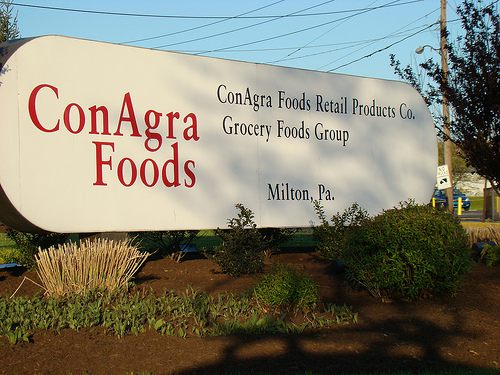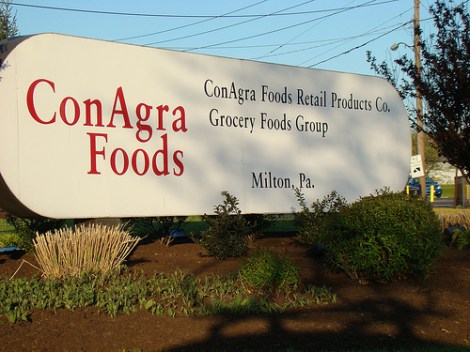A dozen or so organic farmers drive their electric tractors to a wood-beamed meeting house. There, they consider what counts as organic, the processes and additives that should and shouldn’t carry that label. They consider the evidence and talk to the experts, running late into the day as the dusky light outside begins to grow red. After all, the integrity of the label is at stake. Finally, they agree. A few quick handshakes and it’s off into the dusk, the scent of rich soil their companion on the long, slow drive back to the solar panel-topped farmhouse.
This advertisement for organic farming has been brought to you by Kraft.
The reality of industrial consolidation in organic food, as an article in the Times over the weekend made clear, is a familiar — if not yet well-known — tale. A lucrative industry is rapidly embraced and consumed by existing titans, its boundaries stretched and flexed to wring the most money out of the tiniest adjustments. Washington is enlisted as a partner leveraging the tried and true tools of lobbyists and relationships.
The story of Big Ag is the story of Big Organic.
Bear Naked, Wholesome & Hearty, Kashi: all three and more actually belong to the cereals giant Kellogg. Naked Juice? That would be PepsiCo, of Pepsi and Fritos fame. And behind the pastoral-sounding Walnut Acres, Healthy Valley and Spectrum Organics is none other than Hain Celestial, once affiliated with Heinz, the grand old name in ketchup.
Over the last decade, since federal organic standards have come to the fore, giant agri-food corporations like these and others — Coca-Cola, Cargill, ConAgra, General Mills, Kraft and M&M Mars among them — have gobbled up most of the nation’s organic food industry. Pure, locally produced ingredients from small family farms? Not so much anymore.
Why this has happened is obvious. As anyone with even a passing familiarity with the concept of the “grocery store” is aware, products labeled as “organic” carry a premium. Organic fruits and vegetables are always more expensive than their non-organic counterparts; organic packaged foods even more so. For a major corporation that’s already in the business of selling food, that mark-up is hard to resist. As is the fact that the organic market is one of the fastest growing in food sales, one of the few spots in a mature marketplace where that’s the case.
Another reason the organic label is appealing: The standard for what counts as “organic” can be refined to include existing money-saving practices. Decisions about what constitutes an organic product are made by the National Organics Standards Board — an entity comprised heavily of interests from representatives of existing food conglomerates. As established, that shouldn’t be the case. The board is meant to include farmers, conservationists, consumer representatives, and processing companies. But the vagueness of some of those categories has created a broad opportunity for corporations.
Katrina Heinze, a General Mills executive […] was appointed to serve as a consumer representative on the board in December 2005 by Mike Johanns, the agriculture secretary at the time. The outcry over her appointment by advocates and independent organic consumers was so intense that she resigned in February 2006 — but rejoined the board late that year after Mr. Johanns appointed her to the seat designated by law for an expert in toxicology, ecology or biochemistry. During her second stint on the board, which ended last December, critics said they were shocked when she did not recuse herself from the vote to add DHA to the list [of nonorganic ingredients that can be used in products labeled “organic”], since its manufacturer sometimes uses technology licensed from General Mills in making it.
The addition of DHA (docosahexzenoic acid algae oil) led the Cornucopia Institute to produce a white paper called “The Organic Watergate” [PDF], focused on corporate influence in the organic industry.
For small organic food producers and activists, the Times‘ report isn’t news. The vibrant independent organic food movement first battled for acceptance, and is now battling to preserve market share. In a sense, that’s progress. For the rest of us, the report should serve as a wake-up call. Wait. No. Not a wake-up call. The report should serve as a reminder: Ideas that show any hint of promise for producing an engaged, profitable market will necessary be subsumed by existing corporate interests. To paraphrase Douglass, the price of liberty — even in our food choices — is eternal vigilance.





